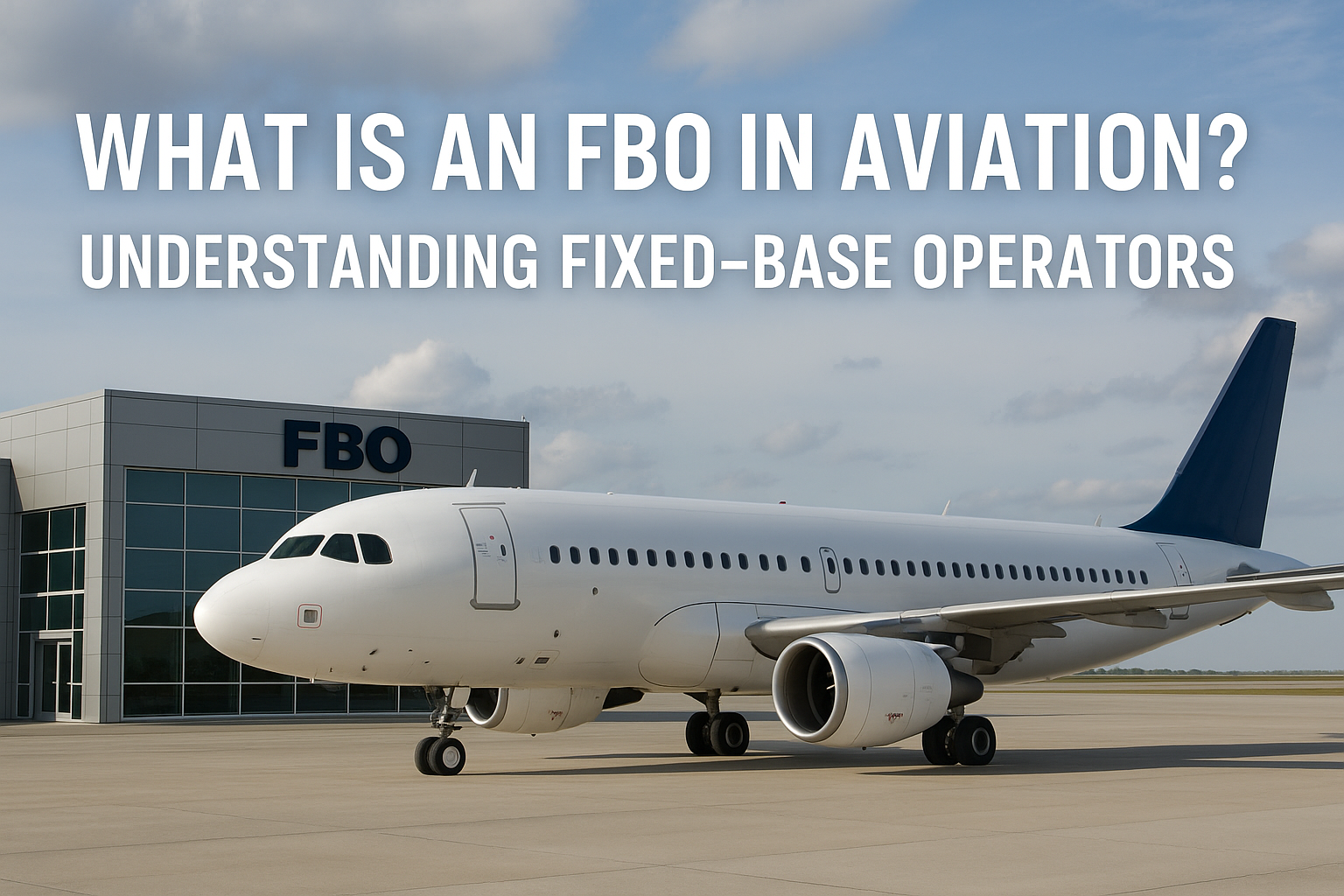Private jets operate away from busy commercial terminals, using exclusive facilities for a smooth and efficient experience. Central to this process is the Fixed-Base Operator, or FBO. This guide explains what they are, how they work, and the services they provide.
👉 Check out the offer: airplane engine stands for lease 👈
Understanding FBS — Definition and Role
An FBO, or Fixed-Base Operator, functions as a private terminal and support hub on airport grounds, providing dedicated services for general and private aviation away from the bustle of commercial terminals.
While major airlines operate from public terminals, private flyers turn to FBS for a discreet, efficient, and personalized experience—one that bypasses the congestion and lengthy procedures of commercial travel.
History of FBS — Evolution in Aviation
The story of the FBO begins after World War I with former military pilots known as “barnstormers.” These transient aviators traveled the country in surplus biplanes, landing in farmers’ fields to offer air shows and passenger rides without a permanent home base.
This unregulated landscape began to shift with the introduction of the Air Commerce Act of 1926. This landmark legislation brought order to the burgeoning aviation industry by requiring pilots and mechanics to be licensed. Crucially, it mandated that aviation businesses operate from a permanent, registered location to ensure safety and accountability.
This new requirement forced the wandering barnstormers to settle down. As they established permanent businesses at airports, the term “Fixed-Base Operator” was coined to distinguish these legitimate, stationary operations from their transient predecessors. The name was literal: they were now “fixed” to a specific base.
Services Offered by FBS — Comprehensive Overview
FBS offer a wide range of services for both the aircraft and its occupants, ensuring a smooth and efficient private flight experience.
Passenger Amenities — Luxury and Comfort
- Luxury Lounges: Passengers are welcomed into private lounges that resemble a luxury hotel lobby, offering plush seating, complimentary refreshments, and state-of-the-art entertainment in a quiet, serene atmosphere.
- Business Facilities: For business travelers, FBS provide high-speed Wi-Fi, private meeting rooms, and fully equipped conference spaces, allowing work and confidential discussions to continue without interruption at the airport.
- Concierge and VIP Services: FBS specialize in coordinating VIP ground transportation, expedited customs clearance, and concierge services for hotel bookings, restaurant reservations, and other travel arrangements.
Aircraft Services — Maintenance and Refueling
- Ground Handling and Refueling: Core services include supplying Jet-A and Avgas fuels, along with essential ground handling like aircraft towing, parking, and providing ground power units (GPUs).
- Maintenance and Repair: Many FBS have certified mechanics for services ranging from routine checks to complex repairs, minimizing downtime by providing on-site access to parts and expertise.
- Aircraft Storage and Servicing: FBS offer secure storage options, from enclosed hangars for maximum protection to outdoor tie-downs. They also handle aircraft cleaning, lavatory servicing, and de-icing for safe winter operations.
FBS Around the World — Global Presence
The concept of the Fixed-Base Operator is not confined to a single country; it is a global standard that underpins private and general aviation worldwide. FBS form a critical international network, acting as private gateways to thousands of destinations across every continent. Whether for a business executive flying into a major financial hub or a tourist chartering a flight to a remote island, an FBO provides the essential ground infrastructure that makes the journey possible.
Large FBO chains like Signature Flight Support, Jet Aviation, and Atlantic Aviation operate globally, providing a consistent standard of service. This standardization ensures that pilots and passengers receive a reliable level of professionalism, safety, and amenities, whether landing in London, Dubai, or Singapore.
Beyond the major chains that dominate key markets, the global FBO landscape includes thousands of independent and regional operators. These facilities often reflect local character, offering services tailored to the region’s unique aviation needs.
Regulations Governing FBS — Compliance and Standards
Behind the smooth experience and luxury of an FBO lies a complex regulatory framework designed to ensure safety and quality. FBS must adhere to strict guidelines from several sources:
- National Aviation Authorities: Bodies like the Federal Aviation Administration (FAA) in the U.S. set baseline rules for fuel handling, maintenance procedures, ground safety, and employee training.
- Airport Authorities: FBS operate under lease agreements with host airports, which impose additional “Minimum Standards” for hours of operation, insurance, and required services. They must also comply with local environmental regulations.
- Industry Organizations: Groups like the National Air Transportation Association (NATA) provide best practices and voluntary certifications (e.g., Safety 1st) that signify a commitment to safety and professionalism beyond basic compliance.

